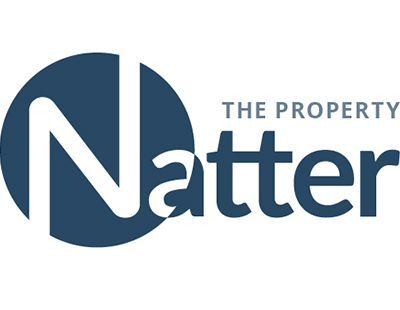Sanford is in the UK for a combined family and business trip and seems relaxed and laid-back despite a period of back-to-back interviews.
The UK version of the brand - eXp UK - is led by Adam Day, the founder of Hatched, an early online estate agency which was eventually shut down in 2018 by its owner Connells. It is keen to paint itself as an alternative to the traditional bricks and mortar agency in the UK, with much more of a focus on the agent rather than the brand, in a similar way to how things work in the US and Australia.
But what does the model actually look like? “eXp offers a self-employed model which is unique in the UK. We’re a no bricks and mortar agency,” Sanford explains. “And, as a result of that, we can pass on the saving, through the lack of footprint we require, in the form of revenue sharing or passive residual income.”
What’s more, Sanford says, agents can receive equity shareholdings, so they can go from being an estate agent to feeling like a business owner – albeit without all the stress, hassle and cost that comes with setting up your own business.
“Agents get the benefits of ownership without the downsides,” Sanford says.
But it’s not franchising, per se. Instead he calls it a commission-sharing agreement with the ability to earn equity.
Does he think UK estate agents – who have traditionally opted for the fully employed model – are entrepreneurial enough for this model? “A percentage of agents anywhere are always going to have that more entrepreneurial mindset. We think 5-10% of agents in the UK have that mindset, which equates to around 4,000-6,000 agents ultimately. eXp will be appealing to them."
He says this may never be the majority of agents, but a significant minority who gravitate towards a self-employed model.
“An estate agent in the UK might not earn that much, and a self-employed model allows them to be paid more for the work they do. They can get their fair share of the commission.”
Sanford insists a good agent will provide a great experience, regardless of the model. “This will sometimes be just themselves, it will sometimes be their staff, but they will know to offer the best structure to their local market.”
He adds: “It’s hard to define what model is best, but consumers want people they know, like and trust, and the self-employed model can provide that.”
Agents who want to join and operate under the eXp banner must have had two years experience of working in agency in the UK, which is different to the US where anyone can become a brand-new licensee.
This, eXp says, means those who are attracted to the brand are typically more experienced and have been working in the sector for 8, 10 or even 12 years.
But is the model the most effective for most agents in the UK? “For some agents, yes. But no-one model will be for everyone,” Sanford says. “For those who are ambitious, the eXp model allows them to get the benefits without full ownership.”
Sanford says the big change over the last 20 years, or longer, has been the ability of agents to use the internet to build their own brand. He also says the internet – and social media in particular – has allowed agents to build relationships with consumers to a greater degree than ever before.
These platforms allow agents to keep in touch with people, so customers know who their agent is and can keep connected to them, Sanford claims. “The agent is the focal point rather than the brand itself.”
Compared to other parts of the world, Sanford says he has noticed that the UK has a lot more models competing for market share.
“There is a lot of competition there for what will be the primary model,” he says. “Consumers win when the competition is so intense and there’s so much choice there.”
Over the next five years, Sanford hopes eXp will reach between 3-5,000 agents in the UK. “Based on our size currently, that seems reasonable. Five years is a decent timespan.”
At present, there are around 270-280 eXp agents in the UK and it claims to be the fastest-growing agency in the UK. In total, it says, it saw growth of over 242% in sales agreed in 2021 compared to 2020 - more than three times the volume of growth in comparison to the nearest competitor, it claims.
The data from TwentyEA compared the performance of the top 50 estate agency brands in the UK from the whole of 2020 to the whole of 2021, and also found that eXp saw growth of 172% in that period for number of instructions, the leading rate in the top 50.
A big part of this growth has been the pandemic, which has caused more people to turn to self-sufficiency and the self-employed model.
eXp says many of the agents joining have been doing so for personal reasons, to work from home more, to spend more time with family, to better control their working week. Control and ownership are the main factors, the company argues.
“Collaboration is a big part of it,” Sanford says. “Tech allows them to be connected from anywhere. We were also the first company to use a metaverse, since we launched in 2009, before metaverse was even a thing. We also used Workplace by Facebook, now Meta, to ensure agents are uberly connected.”
The Facebook groups are there for agents to collaborate and share tips, and there are also regular training sessions throughout the week which agents can hop on and off.
The eXp brand now operates in 19 countries - with Greece the latest recruit – and has around 78,000 agents worldwide.
Its global numbers are certainly impressive, and it’s leading the way with the self-employed model in the UK ahead of rivals such as (US-based also) Keller Williams and Agent & Homes. But whether the more US-style model of self-employed agency can ever fully catch on in the UK remains a topic of fierce debate.
How did eXp come about?
It’s one of the biggest global real estate brands, but how did it first come about? Sanford says the journey began nearly 20 years ago, in April 2002, when he turned to agency from a background in tech and internet marketing – in the days when internet marketing was still in its infancy.
He soon built his own personal practice but became frustrated with the existing model, so joined Keller Williams instead before going independent in 2007 and having four offices by 2008. Following the downturn caused by the global financial crisis, which decimated the property markets in both the US and UK, three of these offices closed and Sanford rebuilt the business as eXp in 2009.
























Join the conversation
Be the first to comment (please use the comment box below)
Please login to comment